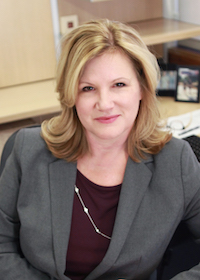Interim Dean's Message
 The New Year is a time to be reflective of what we’ve accomplished and, perhaps more importantly, where we’re headed in service of our mission to make education accessible. There’s been no shortage of predictions this month about what’s to come. In this brief article, I share a few of the most intriguing stories to hit the wire this month.
The New Year is a time to be reflective of what we’ve accomplished and, perhaps more importantly, where we’re headed in service of our mission to make education accessible. There’s been no shortage of predictions this month about what’s to come. In this brief article, I share a few of the most intriguing stories to hit the wire this month.
Eduventures, a leading higher education market research firm, predicts more R1 institutions will launch low-priced master’s degrees. Pioneered by Georgia Tech, the first online master’s ‘at scale’ in Computer Science has enrolled over 8,000 students at a price of $6,600 with no degradation of enrollment in the residential program. Rather than cannibalizing the traditional campus experience, such programs are filling a critical gap in the higher education landscape – bringing R1 degrees to busy working adults whose life circumstances prevent a traditional campus experience. It is refreshing to see this pioneering work being led by top-tier institutions who care as much about quality as we do. More importantly, this work raises an interesting question about what “access” looks like in a modern land grant institution.
In a move to more fully embrace and support innovation, the Trump administration announced plans to overhaul higher education, including potentially dropping the credit-hour standard along with other potential changes. It’s a delicate matter to balance quality and innovation, yet there is little doubt we will see continued pressure to redraw the boundaries.
Finally, Sean Gallagher, writes about the blurring boundaries between degree and non-degree credentialing. Gallagher, executive director of Northeastern University’s Center for the Future of Higher Education and Talent Strategy, explains: “The upstart world of microcredentials—which to date has been relatively isolated from the awarding of degrees—is now beginning to integrate into the online degree market as colleges offer and students demand shorter-format programs and just-in-time learning.” The idea of blurring boundaries is not a competitive statement but rather an invitation to consider the complementarity of alternative credentials and degrees—including the potential pathways between them.
As always, the CPE Division looks forward to being in conversation with our campus colleagues about emerging educational needs and how we might partner to create new and innovative pathways to extend access to the growing population of non-traditional learners. If you have an idea, please don’t hesitate to reach out!
Cheers,
Susan
Susan Catron, EdD
Interim Dean
sdcatron@ucdavis.edu
530-754-9158 (direct line)
